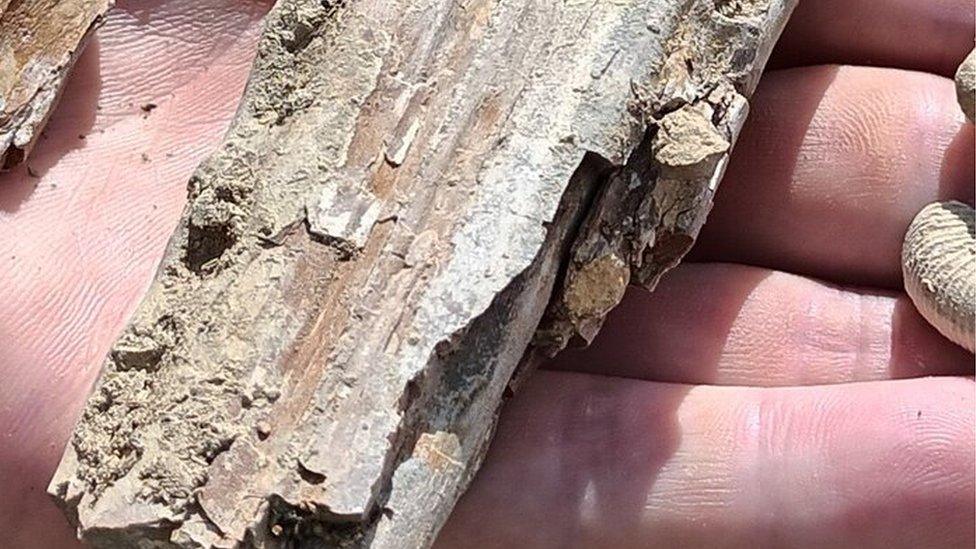Coventry's 500-year-old city wall uncovered
- Published
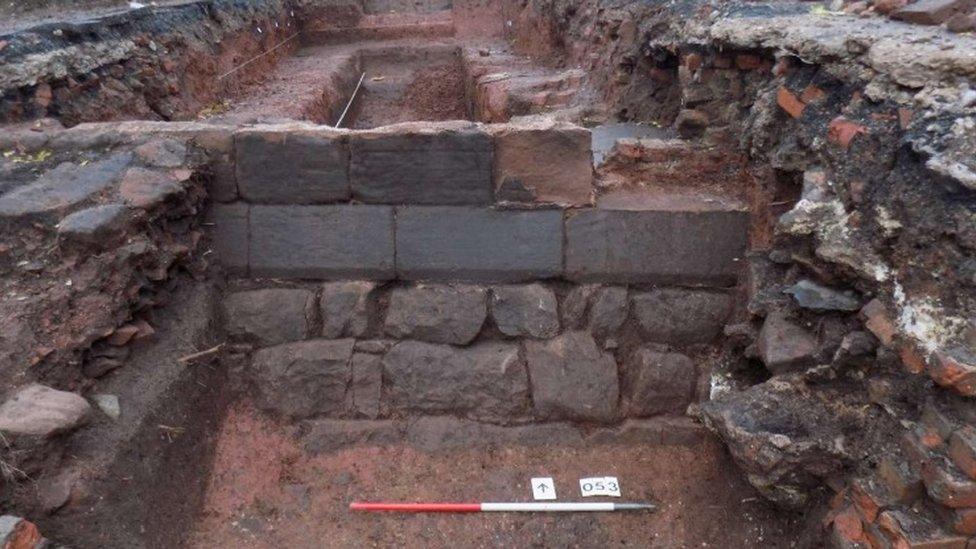
Part of Coventry's ancient city wall discovered at Paradise Street
A section of Coventry's ancient city wall dating back 500 years has been found under land earmarked for high-rise flats.
Archaeologists uncovered the 30m-long (98ft) stone and rubble structure under land on Paradise Street.
The investigation was commissioned by EDP consultants on behalf of Rainier Developments.
A planning application for high-rise flats, including a 20-storey tower, has been submitted to the council.
The wall once formed part of the city's 2.1-mile-long (3.5km) wall which was completed half a century ago along with 20 towers and 12 gates.
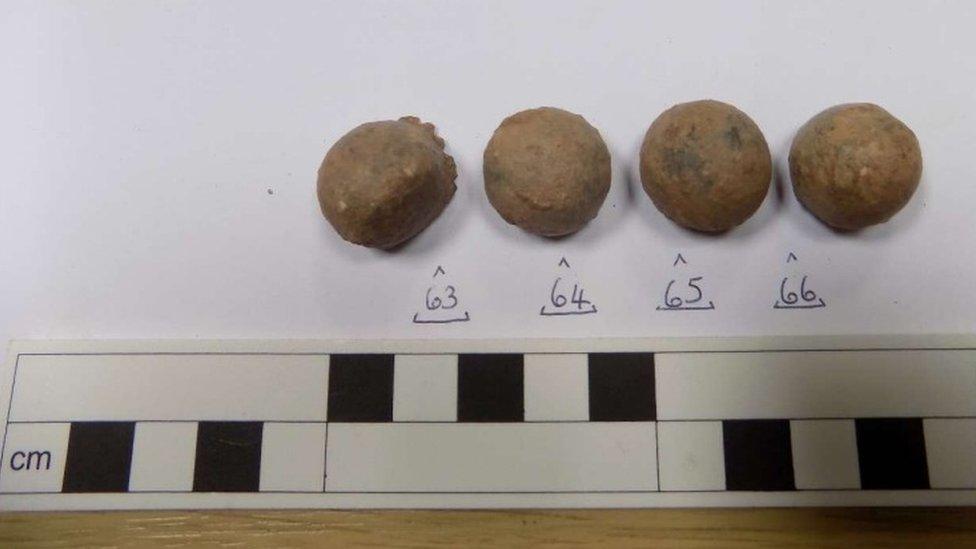
Musket balls that could date back to the Civil War were also discovered in the Paradise Street
Today, just 10 sections of wall and two gates survive across Coventry as most of the structure was destroyed after the English Civil War, the Local Democracy Reporting Service said.
During the dig from October to December last year, experts from Leicester University also discovered part of a 4.6m-deep (15ft) city ditch and musket balls likely dating back to the Civil War.
A separate stretch of wall at Paradise Street was known about before the work started.
This north-south section is protected as a scheduled monument but mostly hidden under a terrace or capped with concrete and fencing.
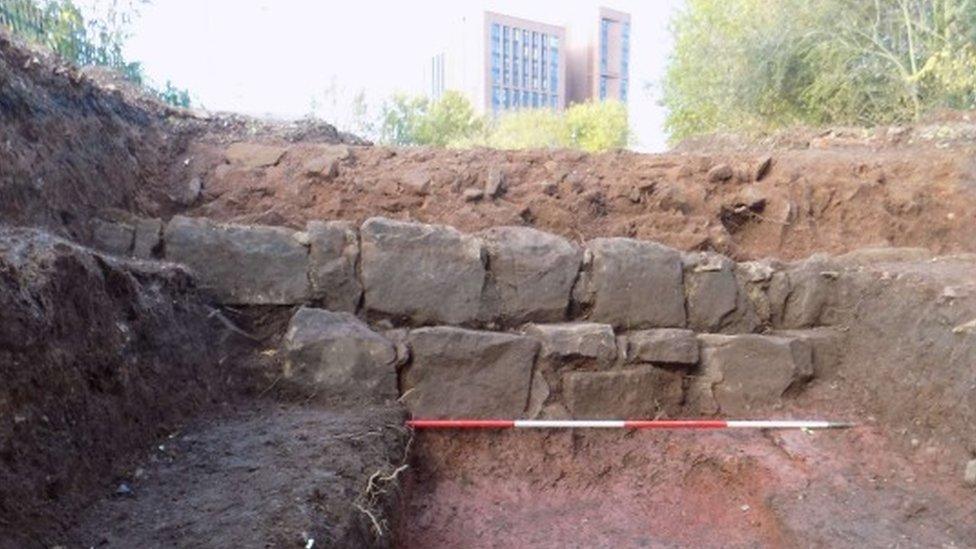
More of the city wall that was discovered at Paradise Street
It is now set to be opened up to the public as part of the new development.
Matthew Morgan, Archaeology Consultant at EDP said Rainier Developments would conserve that structure and incorporate it into a park where people can visit and appreciate the historical remains.
However, the newly discovered parts of the city wall are likely to remain underground, according to an archaeological assessment by EDP submitted with the planning application.

Follow BBC West Midlands on Facebook, external, Twitter, external and Instagram, external. Send your story ideas to: newsonline.westmidlands@bbc.co.uk, external
Related topics
- Published6 October 2022
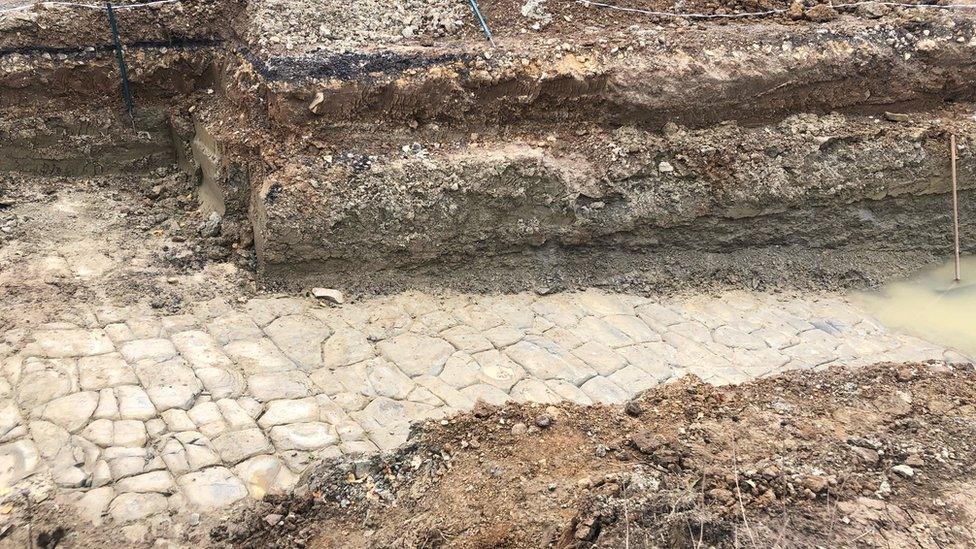
- Published20 July 2022
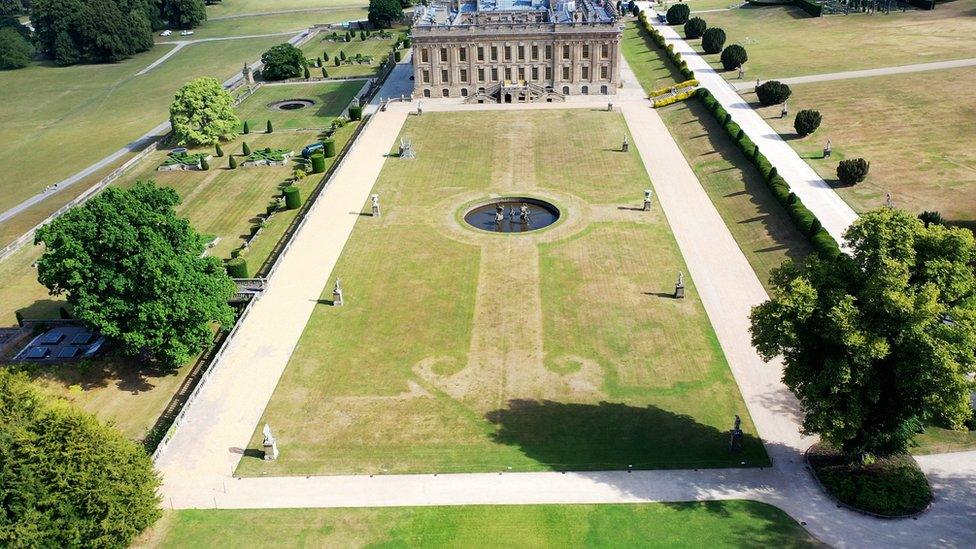
- Published3 September 2022
